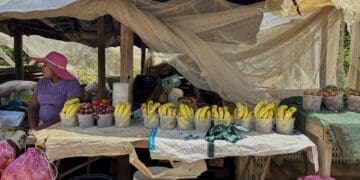By: Tebogo Mokwena
Disadvantaged farmers could receive more than R6 billion in funding over the next 10 years following the Department of Agriculture, Land Reform and Rural Development joining forces with the Land Bank to relaunch a blended finance scheme. Minister Thoko Didiza launched the scheme this week. She said the department would invest R3.2 billion over the 10 years, while the Land Bank would invest R325 million per year.
The scheme will target specific sectors in the agricultural value chain. They include the fruits, nuts and vegetable value chains, the grains and sugar cane value chains, the poultry value chain, and the beef and sheep value chains. The money will be distributed through the Land Bank, and the department will play an oversight role which will also include reporting to its various structures. Didiza said that the department would provide 50% of the grant element and the Land Bank 50% of the loan aspect.
“Grants will be provided based on the present Department of Agriculture, Land Reform and Rural Development qualifying criteria,” she said. “Important to note is that long-term lease agreements, including permission to occupy, that are longer than the period funding, will be accepted as adequate security to enable access to funding.” Only South Africans qualify for the scheme and they must operate black-owned and managed farming enterprises that are commercially viable and prioritised in the Agriculture and Agro-processing Master Plan.
The qualifying criteria also accommodate joint ventures with non-black enterprises, but it stipulates what percentage they must own of the venture. Youth, women, people living with disabilities and military veterans will also be prioritised. Didiza said the aim of the scheme was to support the development of small and medium-scale producers to participate in the mainstream agricultural economy and along the agricultural value chain. “Strategic partnerships like this are critical to ensure growth, food security, development of farmers and transformation of the agricultural sector, and contribute towards job creation,” she noted.
“The objective of the fund is to make land and agrarian reform successful by supporting the development, acquisition and production expansion of qualifying black producers in prioritised value chains.” Land Bank chairperson Thabi Nkosi said that the bank achieved a clean audit outcome for the 2021/22 financial year, and this enabled the successful implementation of the scheme. “In order to ensure increased affordability and inclusion, and to reduce the risk of failure by new entrants, the Land Bank will predominantly follow a blended finance model to support the development of farmers,” Nkosi said.































































